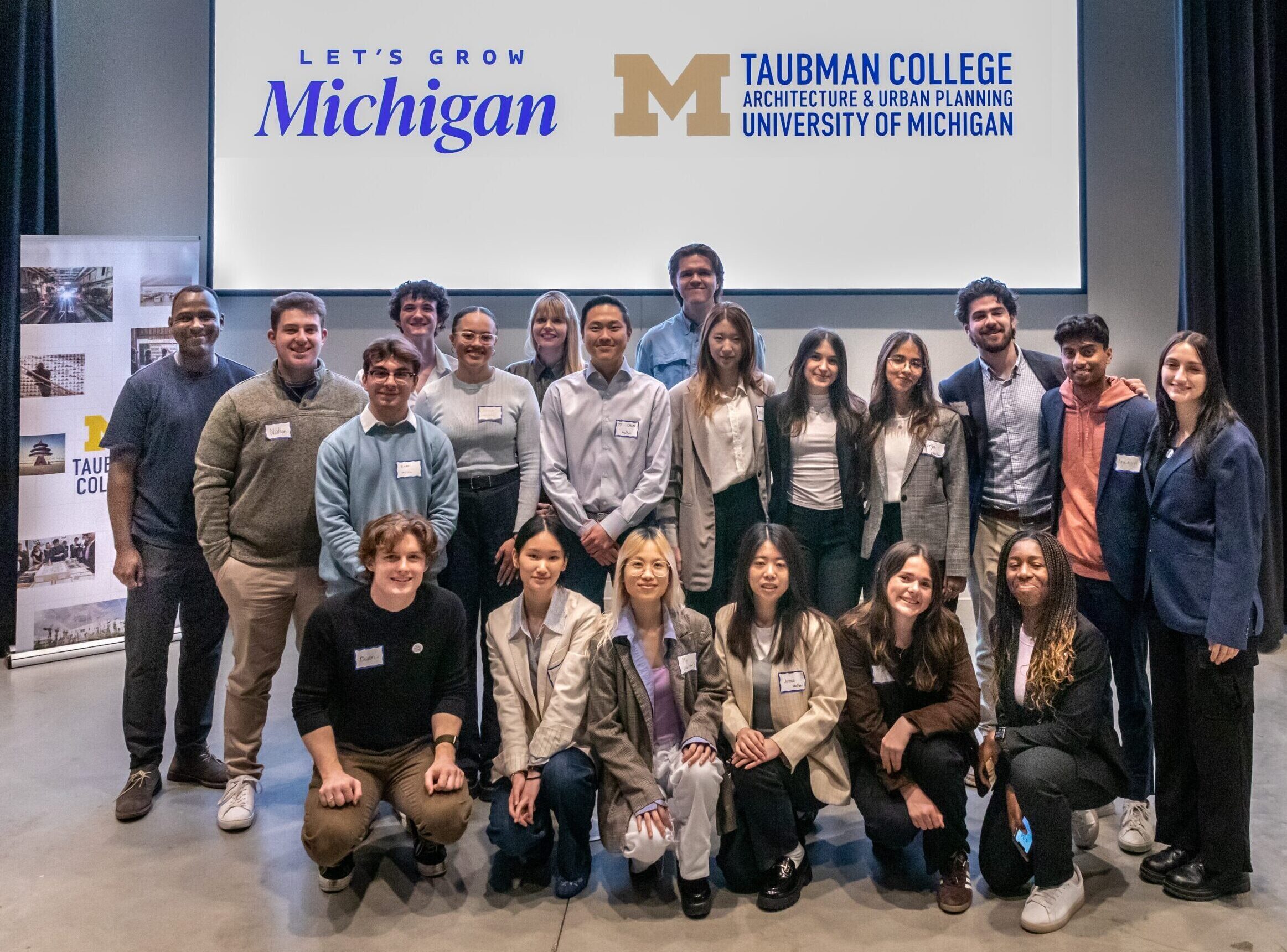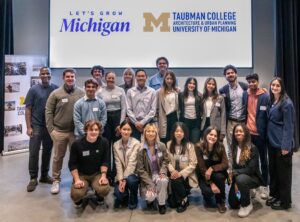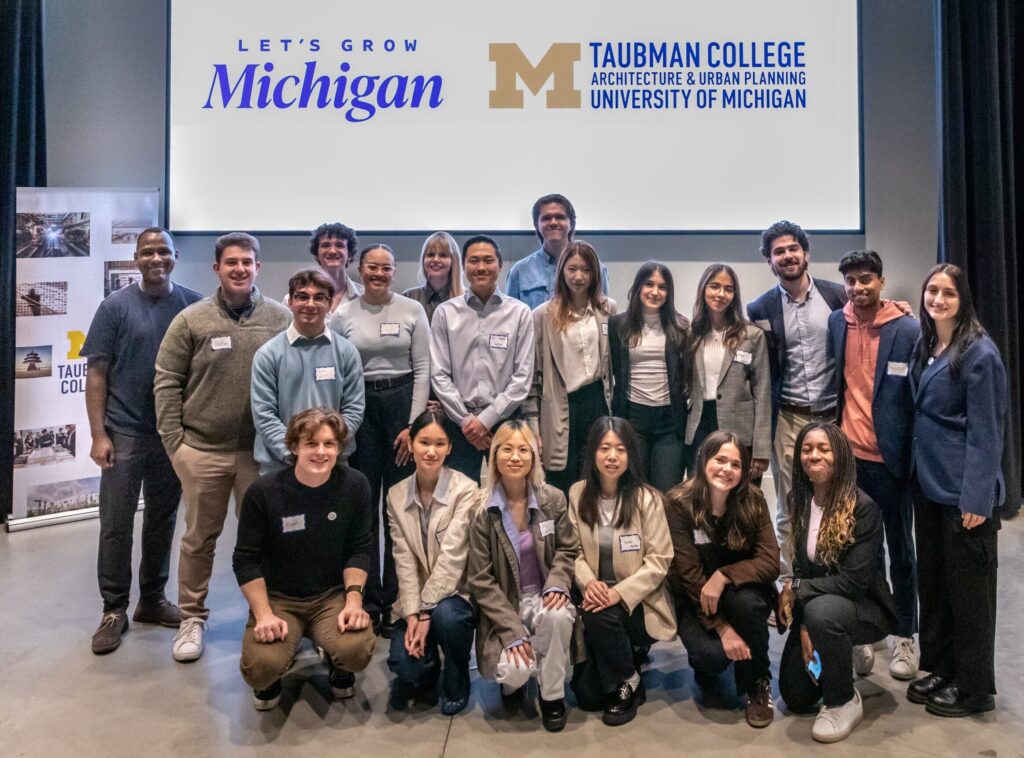
U-M Urban Tech students.

U-M Urban Tech students.
Students from the University of Michigan’s Taubman College of Architecture and Urban Planning participated in a consulting project with the state of Michigan’s population growth campaign, Let’s Grow Michigan. Over the last semester, students focused on creating innovative concepts to welcome new residents into Michigan communities and presented. They presented their ideas to local leaders, U-M officials and the growth team at Newlab in Detroit.
“Being able to work with the only urban technology program in the nation, which also happens to be my alma mater, has been incredibly rewarding,” said Michigan’s first-ever Chief Growth Officer Hilary Doe. “This idea came about while I was on the road listening and speaking with Michiganders last year. I learned that we need great places, great opportunities and welcoming communities to retain current residents and welcome new ones. I’m grateful to the students who have participated in this work. To see their ideas morph into tangible concepts is incredible. Their findings on how we can best welcome new faces to Michigan will make the state an even better place to call home for everyone.”
Offered as part of a first-of-its-kind undergraduate degree program in urban technology, the course “Service Design and Urban Needs” focuses on developing creative ideas at the intersection of design and technology to meet fundamental urban needs. During the winter 2024 semester, 18 junior-level students worked in groups to research, develop and finalize three concepts. To ensure their concepts represent the needs of Michigan’s communities, students interviewed stakeholders across sectors to inform the design process.
Devin Vowels, a junior urban technology student from Rochester Hills says gaining real-world career experience in a class format enabled her to create and problem-solve without workplace pressures.
“I have learned how much I enjoy concept building, strategic thinking and prototype design,” said Vowels. “I’ve also learned how to tell the stories of the people we’re designing for, as well as the story of our project and how it fits into people’s lives.”
The three concepts are:
- Fourth Spaces: A digital platform used to bring Michiganders together by hosting pop-up events at local businesses. This tool connects existing resources like storefronts with new opportunities for economic and social engagement.
- MittenCorps: A talent retention program that connects Michigan-educated graduates to job opportunities in mid-sized Michigan cities. This program would be a collaboration between cities, businesses and people.
- WorldWide MI: A culturally curated service for discovering and connecting communities in Michigan. This digital platform enables people to have culturally relevant experiences that allows them to discover new interests and leads them to form genuine connections with others through their shared experiences.
“These projects are examples of how service design can be used to address gaps or points of friction within whole systems,” said Bryan Boyer, director of Urban Technology program and assistant professor of practice in architecture. “Contributing to the very important question of how to kickstart growth in the state of Michigan is a tremendous experience for the students and a courageous demonstration of MEDC’s creativity in taking on this challenge.”
As efforts to grow Michigan’s population progress, there is hope that these ideas presented by U-M students will act as a jumping-off point for a future pilots targeted at streamlining the onboarding process for new Michiganders.
Michigan’s efforts to grow the population kicked off with the announcement of the state’s first-ever chief growth officer and creation of the Growing Michigan Together Council last summer. Since the council released its recommendations in December, the report has received traction in legislative hearings, in Gov. Whitmer’s proposed 2025 budget recommendations and among community organizations across the state. The broader population growth effort includes engagement with Michiganders statewide and efforts to tell Michigan’s story across the nation.


